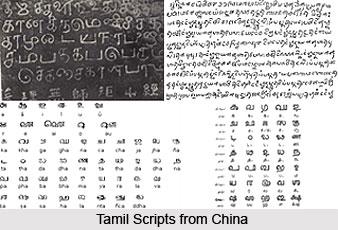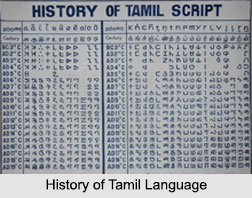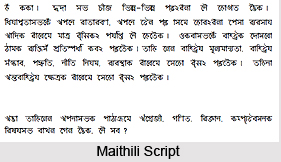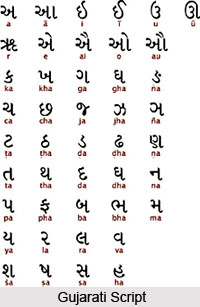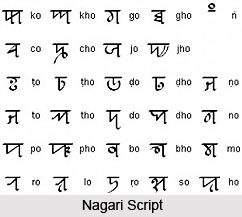Maturaikkanci is a poetic work in Tamil literature from the Sangam age and is comprised in the Pathinenkilkanakku anthology. This literary work of Sangam literature dates back to a period equivalent to between 100 BCE - 100 CE. Maturaikkanci has 782 lines of verses in the Achiriyappa meter. Poet Mankuti Maruthanaar has written the poems in the anthology and has taken opportunity to praise the Netunceliyan (Nedunchezhiyan), the Pandya king. The poem is based on the occurrence and celebration of his triumph at the battle of Talayanankanam. Maturaikkanci is the longest lay in the Pattupattu anthology and contains various kinds of narrative accounts of Madurai, which was amongst the ancient cities in the Tamil nation.
Maturaikkanci celebrates the victory of the hero pf the poem, king Netunceliyan of the Pandya dynasty. The objective of Kancittinai is to point the uncertainties of worldly life and recommend people to follow a path of righteousness. As this is an element of the training conveyed to an emperor living in Madurai, the poem is known as Maturaikkanci. Poet Mankuti Maruthanaar not only educates the Pandya ruler but also blesses him so that his triumphs should enhance like the waxing moon on the west and the magnitude of his enemies should reduce like the waning moon on the east.
Content of Maturaikkanci
The poems in Maturaikkanci provide several references concerning the prominence of the Pandya dynasty, the Pandya kingdom, the ancestors of king Netunceliyan, the noble traits which they possessed and their various achievements as well. An elaborate description of the majestic city of Madurai is also provided in the poem. The narrative description of the city has been composed in an authentic and unique manner. Maturaikkanci the poem invites the reader two thousand years into the past and into the Pandya kingdom by crossing the Vaigai River, passing the fort along with the moat that goes through the entrance of the old Madurai city.
The readers become witness to the unending magnificence of the country. The poem provides a detailed description of the prolonged main roads, the morning marketplace of Nalankati where the clamor and clatter of the vendors appears similar to the sound created during the festive periods. It would take the entire forenoon to move round and check the shops on the main roads. The ambience of the evening market of Allahkati is also narrated and music originates from temples. In Buddhist pagodas, ritualistic prayers are also being carried out by the Buddhist monks and the devotees as well.
The Jain monks are engaged in deep meditation in the Jain monasteries. In the evening bazaar, several articles of brilliant workmanship are on sale. There are many traders and merchants in the marketplace from foreign countries as well. The noise that radiates from their speech is compared to the chirping of birds. As night falls before the trip to the market is complete, people lighten up the evening lamps for prayer. The over all beauty of the city is enhanced by the full moon light. Women redecorate themselves by applying cosmetics and prostitutes are involved in their business. Family women and housewives are engrossed in their daily work, while music and dance performances are carried on. Women and children return back to their homes after completing their prayer in the temple. At midnight, people close their doors and go off to sleep. The pancake vendors and others sleep with their sweetmeats placed right in front of them.
The night guards patrol the city and eventually the midnight withdraws. Early morning twilight appears over the land. The activities of the people at dawn are also described in thorough details. The Hindu priests and Brahmins chant the Vedas. The bees search for honey in flowers accompanied by a humming sound. Musicians play the early morning song known as Murutappan on Yal instrument. Housewives of different families open the doors and clean the entrances of their homes and shopkeepers organize their shops and the articles in them. Horses and elephants and eat fodder. Inhabitants of the city sing a special morning song known as Tiruppalliyelucci at dawn. The temple drum sounds; swans quack, peacocks coo and cocks crow. The streets are cleaned and morning finally appears.
Maturaikkanci provides a narrative picture of the grand ancient city of Madurai in 354 lines.
